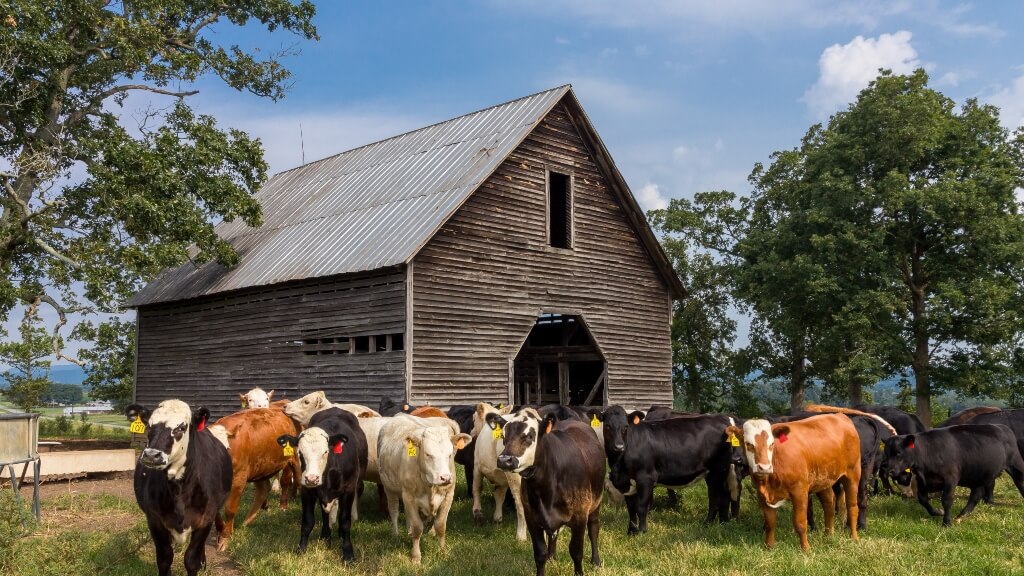New research reveals food is primary driver of EU-27's outsized ecological footprint
A quarter of the food consumed in the EU-27 comes from outside the region, highlighting the vulnerability of the EU's food systemJust five countries, one of which is Spain, account for 70% of EU-27's ecological footprint
The study published in 'Nature Food' was carried out in collaboration with food experts from the UOC

New research coordinated by Global Footprint Network’s sustainability scientists in collaboration with food systems experts, including Anna Bach Faig, member of the FoodLab group and the Faculty of Health Sciences at the Universitat Oberta de Catalunya (UOC), has been published in an article in Nature Food this week: EU-27 Ecological Footprint was primarily driven by food consumption and exceeded regional biocapacity from 2004 to 2014. The way food is provided to and consumed by Europeans accounts for the largest share of their ecological footprint, at around 30%. The study points out the need to design, implement and enforce policies at each stage of the food supply chain to deliver on the European Green Deal and the Farm to Fork Strategy.
Food systems generate many pressures on ecosystems in the chain from farm to fork, including land use and land use change, water depletion and pollution, biodiversity loss and greenhouse gas emissions. “People in Europe are eating beyond their means in terms of imports, carbon emissions, and land and water use,” explained Roberta Sonnino of the Centre for Environment and Sustainability and Fellow of the Institute for Sustainability at the University of Surrey. “The tendency to intervene on either the supply or the demand side isn’t working. Rather, we need a systemic approach to address them together, as well as looking at trade policies. Instead of taking a scattergun approach, national governments must implement holistic food policies based on evidence – the sort of evidence contained within this research,” she said.
UOC Foodlab researcher Anna Bach Faig analysed consumption trends and possible solutions for the study, proposing actions for a more sustainable food system for the 27. “The results highlight the importance of getting proteins from other sources than just meat and dairy products, increasing plant-rich diets and managing portion sizes,” said Bach Faig.
In line with prior research, the study shows that animal products – meat, fish and, to a lesser degree, dairy – are very resource-intensive compared to plant-based foods. However, plant-based foods, like vegetables, only represent the main part of diets in 8 of the 27 EU countries. “Current concerns regarding nutrition and the environment mean there is a need to increase sources of plant-based proteins, such as legumes and nuts. Policies aimed at ensuring sufficient access to sustainable and healthy food need to be promoted as part of public contracts or school curriculums, for example,” said co-author Bach Faig.
Overall, five countries alone make up nearly 70% of the EU-27 footprint: Germany (21%) in Central Europe; France (15%) in Western Europe; Italy (13%) and Spain (12%) in the Mediterranean; and Poland (8%) in Eastern Europe).
EU-27 consistently exceeded the region’s biocapacity
Humanity’s demand for biological resources and ecosystem services far exceeds the planet’s capacity to regenerate biological resources and sequester carbon dioxide emissions, as shown by the progression of Earth Overshoot Day. Similarly, based on the data analysed in the study, the ecological footprint of the EU-27 population has consistently exceeded the region’s biocapacity and depended on resources from outside the region to meet EU lifestyle demands.
According to Alessandro Galli, the article's research coordinator and lead author, and Global Footprint Network's Director for Mediterranean and MENA Regions, “The European Green Deal and the Farm to Fork Strategy position the EU as a global leader in the transition towards more sustainable food systems and societies. However, with nearly 25% of the biocapacity needed to support the diets of EU-27 residents coming from non-EU countries, our analysis suggests that solely applying Farm to Fork objectives to the domestic agricultural sector will not be sufficient to meet the EU’s decarbonization targets and instead shifts environmental impacts to non-EU countries.”
Marta Antonelli, co-author and Food Systems Project Lead at Global Footprint Network, said: "Supply-side changes alone are likely insufficient to make the EU-27 food system sustainable in the terms described by the Farm to Fork Strategy. Including both nutritional and sustainability perspectives into national food-based dietary guidelines can trigger changes in food consumption and behaviour trends for the benefit of both planetary and human health.”
Reference article:
Alessandro Galli, Marta Antonelli, Leopold Wambersie, Anna Bach-Faig, et al. EU-27 Ecological Footprint was primarily driven by food consumption and exceeded regional biocapacity from 2004 to 2014. Nature Food (Sept. 2023) https://www.nature.com/articles/s43016-023-00843-5
Press contact
Sònia Armengou Casanovas
sarmengouc@uoc.edu
+34 619 413 823
UOC R&I
The UOC's research and innovation (R&I) is helping overcome pressing challenges faced by global societies in the 21st century by studying interactions between technology and human & social sciences with a specific focus on the network society, e-learning and e-health.
Over 500 researchers and more than 50 research groups work in the UOC's seven faculties, its eLearning Research programme and its two research centres: the Internet Interdisciplinary Institute (IN3) and the eHealth Center (eHC).
The university also develops online learning innovations at its eLearning Innovation Center (eLinC), as well as UOC community entrepreneurship and knowledge transfer via the Hubbik platform.
Open knowledge and the goals of the United Nations 2030 Agenda for Sustainable Development serve as strategic pillars for the UOC's teaching, research and innovation. More information: research.uoc.edu.
Experts UOC
Press contact
-
Editorial department
